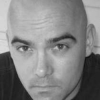Philipp Meyer

Philipp Meyer
Philipp Meyeris an American fiction writer, and is the author of the novels American Rust and The Son, as well as short stories published in McSweeney’s Quarterly, The Iowa Review, and Esquire UK. Meyer is the recipient of a 2010 Guggenheim Fellowship. He grew up in Hampden, a blue-collar Baltimore, Maryland, neighborhood often featured in the films of John Waters. His mother is an artist; his father is an electrician turned college biology instructor. Meyer considers his major literary influences...
NationalityAmerican
ProfessionWriter
CountryUnited States of America
When people grow up in atmospheres of violence or atmospheres of poverty, they don't normally use hi-falutin' language to describe those things. They would describe some brutal event the same way we would describe getting a taxi or missing the bus.
If you've grown up with guns, the thought that someone might take them away makes your stomach churn. They make you feel safe. If you didn't grow up with guns, if you don't know how to use them, then the thought that someone else has them makes your stomach churn.
I was a bit of a delinquent growing up, a very poor student - I nearly failed several grades before dropping out of high school and getting a G.E.D. But I still read a lot. Thrillers and war novels, mostly, along with the occasional literary novel from my parents' bookshelf.
I'd grown up in a working class neighborhood in Baltimore, a place hard hit by the offshoring of numerous heavy industries - steel, textile, shipbuilding.
You ought to be able to grow up in a place and not have to get the hell out of it when you turn eighteen.
The entire history of humanity is marked by a single inexorable movement - from animal instinct toward rational thought, from inborn behavior toward acquired knowledge. A half-grown panther abandoned in the wilderness will grow up to be a perfectly normal panther. But a half-grown child similarly abandoned will grow up into an unrecognizable savage, unfit for normal society. Yet there are those who insist the opposite: that we are creatures of instinct, like wolves.
I'm interested in getting deep into a person's consciousness and doing so in ways in which the narrator is secondary to the character's own thoughts.
I try to begin writing as close to a dreamlike state as I can get.
Cornell changed my life; getting in there was one of my pinnacle moments.
When you hold things back, when you don't commit completely to your ideas and trust completely in your own instincts, you are guaranteeing your own failure - even if you end up having commercial success.
When I dropped out of high school at age 16, I didn't know I was going to become a writer - I just knew I'd never been happy in school, and I had this strong suspicion I'd be happy doing other things.
Texas was mostly short-grass and tall-grass prairie when modern Europeans arrived here. It really was a land of milk and honey. But when they brought all these cattle onto these relatively small bits of land, and the cattle were allowed to graze freely, they essentially destroyed the prairie.
At Cornell University, it was well known that after five years on Wall Street, you could expect to be making half a million a year in salary and bonus; after 10 years, you could expect a million or more. I had 60 grand of university debt, and my parents had no retirement. I needed that money.
I didn't fit the typical profile of a trader. I was an English major working on a novel at night. Most everyone else was a maths or economics major; most everyone else had relatives or family in banking.